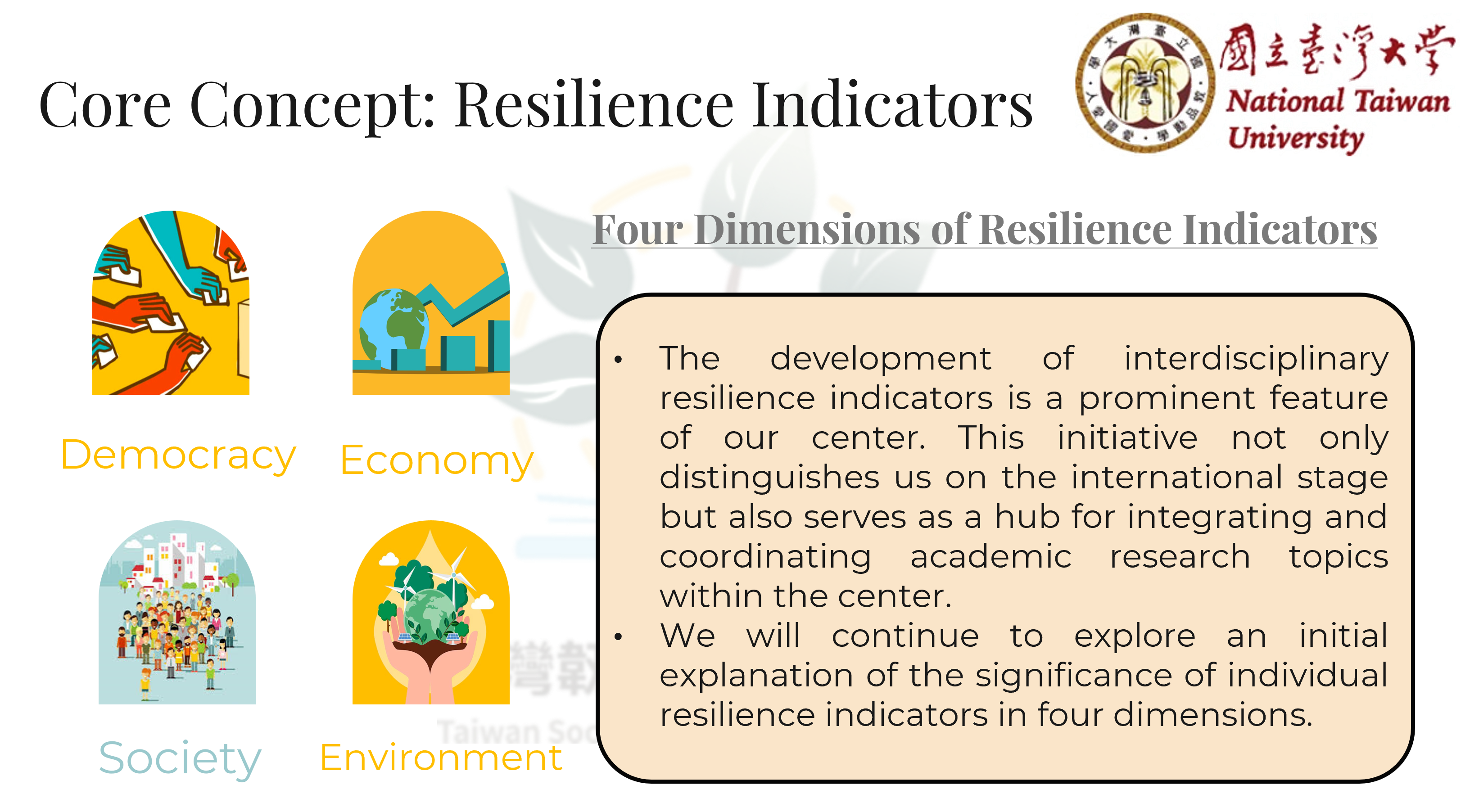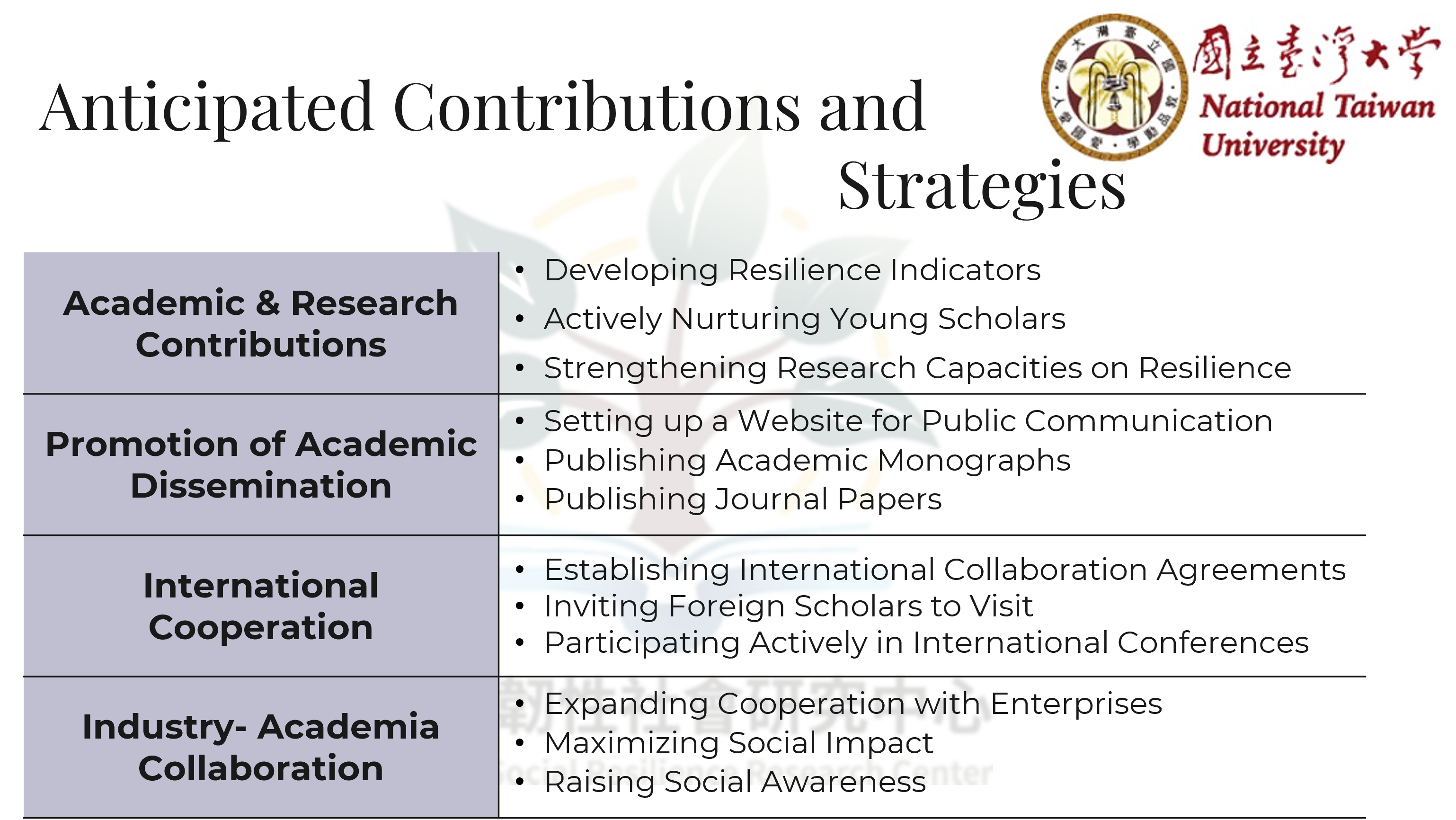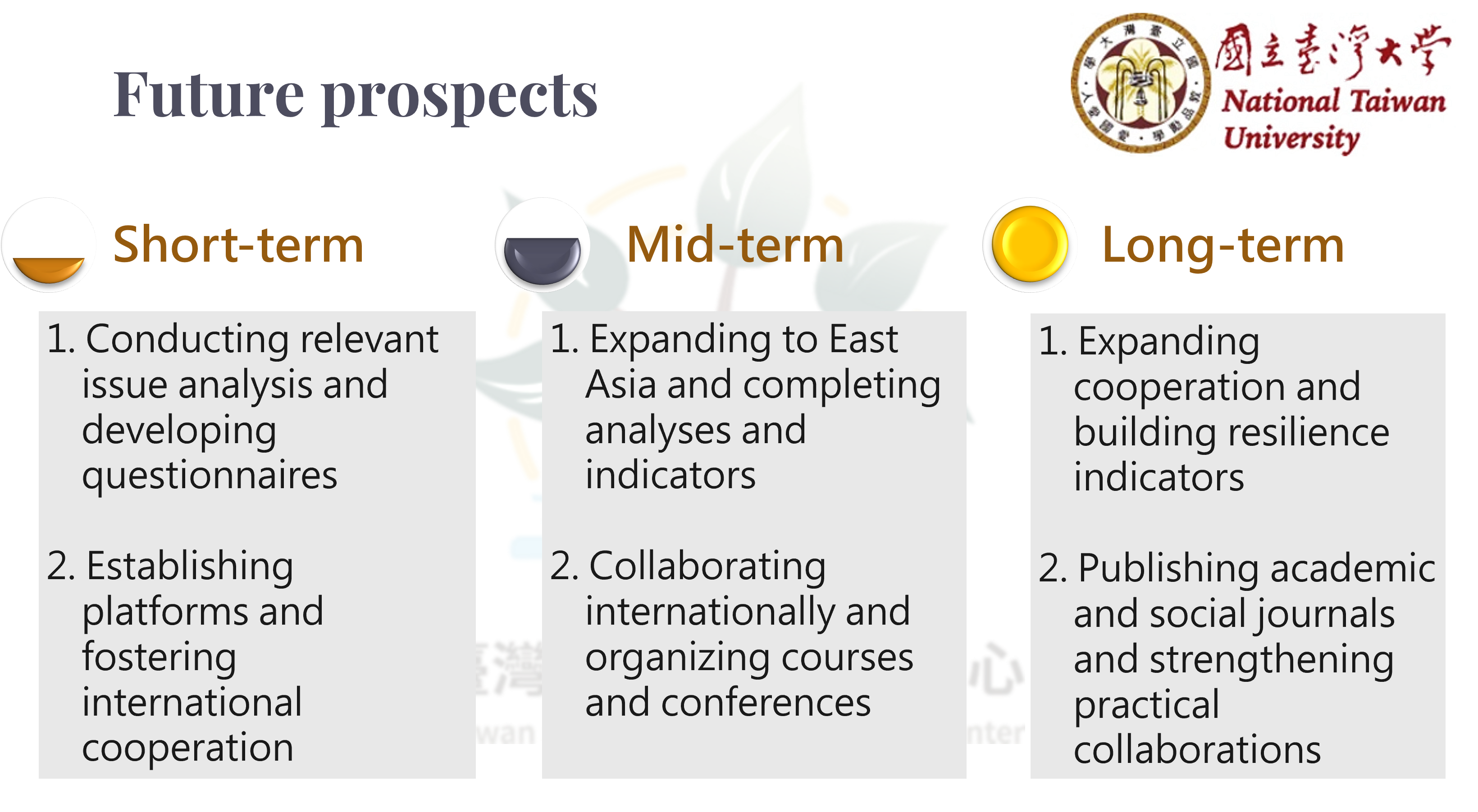In recent years, systemic risks and crises have frequently emerged in various aspects such as the international political-economic order, public health, and geopolitical risks. These challenges impact the functioning of national societies and even pose threats to democratic and liberal systems. A resilient society is capable of maintaining existing order without collapse, making rapid adjustments to adapt, transforming systemic institutions, and seizing development opportunities amidst external shocks. The Taiwan Social Resilience Research Center at National Taiwan University integrates expertise from various social science fields, including politics, economics, sociology, social work, journalism, and public administration. The center's main research theme is "Social Resilience and Development Opportunities in Taiwan in an Era of Tremendous Changes." The goal is to identify the major risks and challenges that Taiwanese society will face in the next decade and provide policy recommendations to strengthen organizations and mechanisms, grasp new development opportunities, and create a resilient society.


The center will develop interdisciplinary resilience indicators as tools for enhancing public awareness, identifying structural weaknesses, and tracking resilience development. Through the discussion and reflection on indicator construction, comprehensive research topics will be formulated, and five interdisciplinary research teams will be tasked with their execution. These teams consist of 73 scholars from the National Taiwan University's College of Social Sciences and 13 scholars from other institutions, focusing on issues such as geopolitical risks and globalization, policies and market mechanisms, population and family transformation, inequality and government governance, and democratic resilience and public communication. The research results, published in academic journals and thematic annual conferences, aim to have a long-term academic and social impact.
Building upon the three benchmark fields of the College of Social Sciences at National Taiwan University (politics, economics, and sociology, including social work), the center will further develop through interdisciplinary collaboration for synergy and international cooperation to leverage first-rate resources. By harnessing the existing academic strengths of National Taiwan University across various fields, the center aims to generate internationally distinctive research on resilience. The center's existing international reputation and network connections will contribute to its visibility on the global stage. Young scholars will be invited to join the team, fostering the next generation of scholars through cross-national and interdisciplinary academic training.
Key Focus Areas of the Research Center:
1. The main theme revolves around exploring the social resilience and development opportunities of Taiwan in an era of tremendous changes, with the integration of interdisciplinary national resilience indicators.
- The creation of comprehensive, internationally distinctive indicators for resilience is a pioneering effort.
- Identification of structural weaknesses and tracking resilience development will promote public awareness and importance of resilience.
- The discussion of indicator construction and survey results will lead to the formulation of integrated interdisciplinary academic and policy research topics, executed by five sub-project teams.
- Presentation of insightful academic papers and policy recommendations.
2. Cultivating a new generation of academic talents:
- Involvement of assistant professors, post-doctoral researchers, and graduate students in research projects.
- Organization of outstanding thesis selection and encouragement of voluntary reading groups.
- Exchange visits with foreign partner institutions (lasting three months or more).
- Provision of programming training and state-of-the-art computing equipment; offering resilience-related courses on campus.
- Establishment of a dedicated online platform section for students to contribute, enhancing their data collection,contextualization, and narrative reasoning skills.
3. Exerting research influence and fulfilling social responsibility:
- Organization of industry-academia-government seminars.
- Publication of related research as a series of monographs.
- Regular release of policy briefs.
- Collaboration with industries, providing consultation services such as data analysis, public opinion surveys, NGO service evaluations, and carbon emission policy analysis.
Expected Benefits and Major Breakthroughs:
- Exploration of social resilience and development opportunities in Taiwan during an era of tremendous changes from a social science perspective, providing academic insights and policy recommendations.
- Development of interdisciplinary national resilience indicators with international distinctiveness.
- Invitation of foreign scholars for residency in Taiwan, establishing an internationally important research center.
- Cultivation of the next generation of scholars with solid social science training, modern information science capabilities, keen social observation skills, cross-cultural competency, and interdisciplinary academic abilities.
- Analysis of the major risks and challenges facing future Taiwanese society, identification of vulnerable points, proposal of policy recommendations to strengthen organizations and mechanisms, seizing development opportunities in the face of risks, and the creation of a resilient society.

